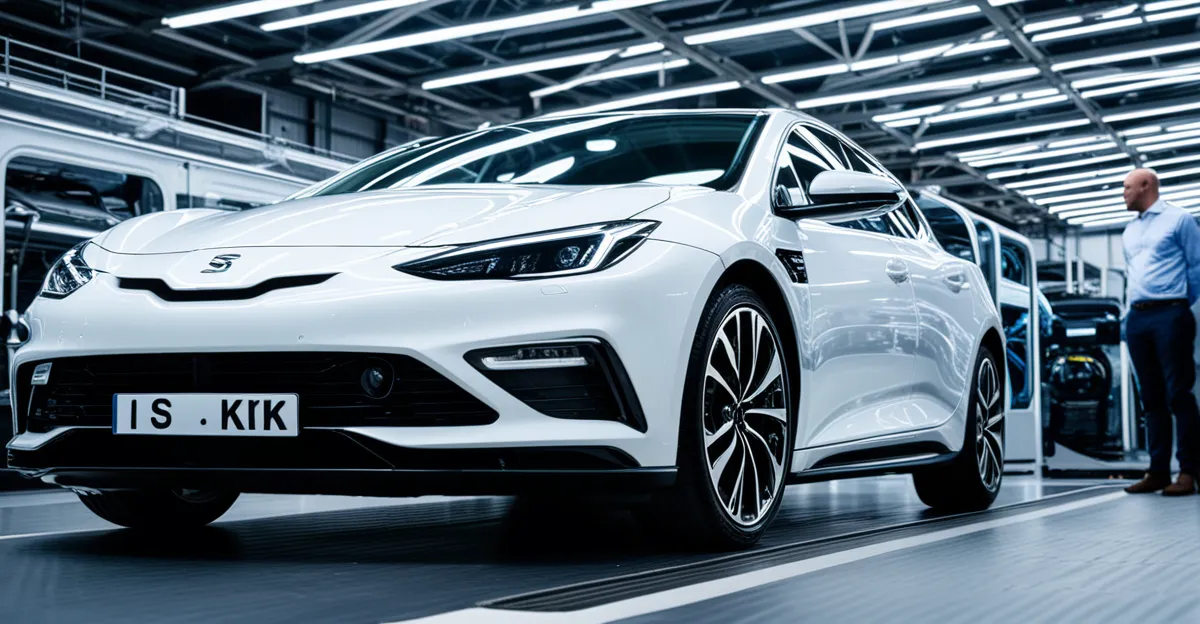Impact of Sustainable Innovations on the UK Automotive Industry
Sustainable automotive innovation is rapidly reshaping the UK automotive future, driven by increasing environmental concerns and evolving industry trends. These innovations focus primarily on reducing carbon emissions and improving energy efficiency, essential for the sector’s competitiveness and market positioning.
One of the most notable changes is the significant rise in electric vehicles (EVs) adoption across the UK. Manufacturers are investing heavily in EV technology, alongside alternative powertrains such as hybrids and hydrogen fuel cells. This shift is not only a response to consumer demand but also a proactive step to comply with tightening environmental regulations.
Also read : How Are Emerging Technologies Transforming the Future of the UK Automotive Industry?
The current landscape illustrates a strong industry commitment to sustainability. UK-based companies are pioneering developments in battery technology and lightweight materials, which enhance vehicle efficiency. Additionally, innovation extends to infrastructure, with expanded charging networks facilitating broader electric vehicle integration.
By embedding sustainable automotive innovation into their core strategies, UK manufacturers are positioning themselves to lead in a competitive global market. This evolution reflects broader industry trends focused on balancing economic growth with environmental stewardship, underscoring the critical role of sustainability in shaping the future of UK automotive manufacturing.
Also to discover : What Are the Latest Revolutionary Technologies in the UK Automotive Industry?
Regulatory Drivers and Industry Compliance
The UK automotive regulations play a pivotal role in steering the sector toward sustainability. Central to these rules are stringent decarbonisation targets and comprehensive sustainability standards designed to reduce greenhouse gas emissions. These include precise emissions standards that manufacturers must meet, which directly influence vehicle design and technology adoption.
Compliance with these green automotive policies is not optional; it shapes manufacturer strategies and investment priorities. For instance, automakers must carefully integrate electric and alternative powertrains to adhere to mandated limits on carbon emissions. Failure to comply risks substantial penalties and restricted market access.
Moreover, evolving regulations encourage innovation by setting ambitious goals, such as phasing out fossil fuel vehicles within specific timelines. This regulatory pressure forces companies to enhance R&D efforts, focusing on battery efficiency and renewable energy integration.
The cumulative effect of these UK automotive regulations ensures that sustainability is embedded throughout the industry’s value chain. Manufacturers are thus propelled not only to meet current legislation but to anticipate future regulatory landscapes, making compliance a cornerstone of competitive positioning and long-term viability in the UK automotive market.
Challenges to Achieving Sustainability in the UK Automotive Sector
Sustainable automotive innovation in the UK faces notable barriers to sustainability, particularly in infrastructure and technology. For example, the expansion of charging stations to support electric vehicles remains uneven, limiting widespread adoption. These automotive challenges are further complicated by the high costs and complexities of developing and producing new green technologies within UK manufacturing.
Economic pressures stemming from global supply chain disruptions also affect access to critical materials like lithium and rare earths essential for battery production. This scarcity increases costs, delaying sustainable innovation rollouts. Additionally, the skills gap within the UK workforce impedes rapid shifts toward green technologies. Many manufacturers struggle to find workers trained in electric powertrains, hydrogen fuel cells, or smart manufacturing techniques.
Addressing these workforce readiness issues requires upskilling and reskilling initiatives to meet the demands of evolving UK manufacturing. Without resolving these hurdles, the UK risks slowing progress toward its sustainable automotive goals. Consequently, these barriers directly influence the pace at which sustainable innovations are integrated, affecting the entire UK automotive future and the sector’s ability to stay competitive globally.
Opportunities Through Embracing Green Technologies
Embracing green automotive technologies opens vast industry opportunities within the UK automotive sector. The widespread adoption of electric vehicles (EVs) and hybrids marks a transformative shift toward cleaner mobility. EVs reduce tailpipe emissions, aligning with regulatory demands while catering to rising consumer preferences for sustainable transport.
Hybrid models serve as transitional innovations, combining electric and conventional powertrains to optimize efficiency, making them appealing for markets with limited charging infrastructure. Manufacturers investing in these technologies bolster their competitiveness and future-proof their product lines.
Hydrogen and other alternative fuels offer promising avenues beyond battery electrification. Advances in hydrogen fuel cell vehicles provide extended range and rapid refueling, which could complement EVs to diversify clean transport options. This diversification supports resilience amid battery material supply chain constraints.
Furthermore, digitalisation and smart manufacturing techniques improve production efficiency and enable real-time energy management. These innovations reduce waste and lower the environmental footprint throughout the vehicle lifecycle.
Together, these green technologies form the cornerstone of a sustainable transformation driving the UK automotive future, helping manufacturers capitalize on evolving industry trends while reinforcing the sector’s commitment to environmental responsibility.









